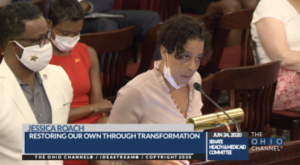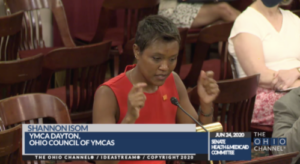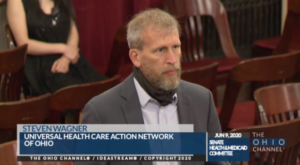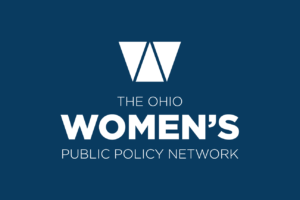FOR IMMEDIATE RELEASE
Contact: Rachel Coyle, Coyle@InnovationOhio.org, 419-351-5844
December 9, 2021
DeWine Administration Policy Could Force 2 Million Ohioans to Change Healthcare Coverage
Policy could disproportionately affect poor Ohioans, women, communities of color
COLUMBUS — Today, Innovation Ohio Education Fund (IOEF) released an analysis of the DeWine Administration’s decision to require all consumers participating in Medicaid managed care — over 2.9 million Ohioans — to take action to keep their current plan or risk being assigned to a new plan by computer algorithm.
IOEF’s review found that this new policy could result in two million or more Ohioans experiencing a change in healthcare coverage.
“Our assessment shows that this DeWine Administration policy will disproportionately impact poor Ohioans, women, and communities of color. Yet we also found very little in terms of explanation from the Ohio Department of Medicaid regarding the need for these changes,” said Desiree Tims, President and CEO of Innovation Ohio and Innovation Ohio Education Fund.
The change, scheduled for spring 2022, coincides with the rollout of a new set of managed care plans. Last year, the DeWine Administration announced that it was renewing the contract of four of the five existing managed care companies, while one — Toledo-based Paramount Advantage — was not selected for renewal. Three new providers were selected to join the four incumbent plans beginning in July.
Before the policy change, the Ohio Department of Medicaid allowed members to change healthcare plans during the annual open enrollment period, but no action was required for a member who wished to stay on their current plan. Per the DeWine Administration’s new policy, even consumers whose provider was retained will be forced to affirmatively state their intention to keep their current healthcare plan. Medicaid members who do not make this proactive effort will be reassigned to one of now-seven providers.
“The DeWine Administration is already forcing over 250,000 Ohioans currently receiving coverage with Paramount Advantage to find new plans. Our analysis finds the potential for even further chaos with over two and a half million more Medicaid members forced to either proactively reaffirm their plans or be involuntarily reassigned new ones,” continued Desiree Tims.
IOEF’s policy review also identified several outstanding questions regarding how the plan re-selection process will work. Unless the Department deploys a highly targeted and comprehensive outreach strategy, and the affirmation process is exceptionally user friendly, it is likely that hundreds of thousands of Ohioans will be reassigned. Many could be required to seek out new doctors or risk discovering that their longtime provider is no longer covered by their insurance.
“It has become clear to us in reviewing this policy that lawmakers should put the brakes on implementation and push for answers before the process begins. Why is the state requiring Medicaid members whose providers will retain their contracts to take proactive action? How will customers be notified of the need to reaffirm their provider? Does this really benefit Medicaid members, or simply the newly contracted providers?” asked Tims.

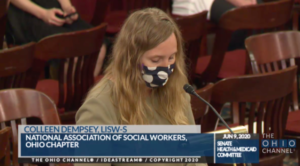 “Police violence is only one manifestation of racism as a public health crisis. Underlying these gruesome, widely shared videos are centuries of public policy that have created racial disparities either intentionally or by neglect in health care, housing, human services and on. Social workers see these impacts in every facet of health and human services where we work; as the predominate providers of behavioral healthcare in the state, in child and adult protection, doctor’s office and hospitals, schools, prisons and nursing homes. In each of these areas of practice, racial disparities in outcomes are common, not because of factors internal to Black people and other people of color, but because of racism in the environment.” Colleen Dempsey, Licensed Independent Social Worker and the Practice Associate for the Ohio Chapter of the National Association of Social Workers
“Police violence is only one manifestation of racism as a public health crisis. Underlying these gruesome, widely shared videos are centuries of public policy that have created racial disparities either intentionally or by neglect in health care, housing, human services and on. Social workers see these impacts in every facet of health and human services where we work; as the predominate providers of behavioral healthcare in the state, in child and adult protection, doctor’s office and hospitals, schools, prisons and nursing homes. In each of these areas of practice, racial disparities in outcomes are common, not because of factors internal to Black people and other people of color, but because of racism in the environment.” Colleen Dempsey, Licensed Independent Social Worker and the Practice Associate for the Ohio Chapter of the National Association of Social Workers 
